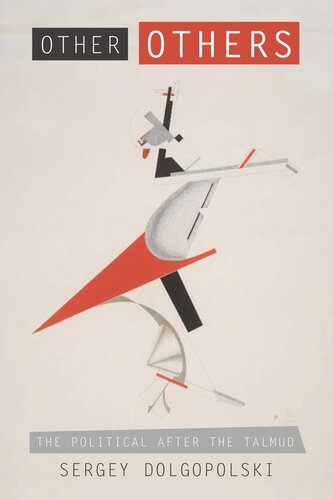

Most ebook files are in PDF format, so you can easily read them using various software such as Foxit Reader or directly on the Google Chrome browser.
Some ebook files are released by publishers in other formats such as .awz, .mobi, .epub, .fb2, etc. You may need to install specific software to read these formats on mobile/PC, such as Calibre.
Please read the tutorial at this link: https://ebookbell.com/faq
We offer FREE conversion to the popular formats you request; however, this may take some time. Therefore, right after payment, please email us, and we will try to provide the service as quickly as possible.
For some exceptional file formats or broken links (if any), please refrain from opening any disputes. Instead, email us first, and we will try to assist within a maximum of 6 hours.
EbookBell Team

4.8
14 reviewsDenying recognition or even existence to certain others, while still tolerating diversity, stabilizes a political order; or does it? Revisiting this classical question of political theory, the book turns to the Talmud. That late ancient body of text and thought displays a new concept of the political, and thus a new take on the question of excluded others. Philosophy- and theology-driven approaches to the concept of the political have tacitly elided a concept of the political which the Talmud displays; yet, that elision becomes noticeable only by a methodical rereading of the pages of the Talmud through and despite the lens of contemporary competing theological and philosophical theories of the political. The book commits such rereading of the Talmud, which at the same time is a reconsideration of contemporary political theory. In that way, The Political intervenes both to the study of the Talmud and Jewish Thought in its aftermath, and to political theory in general.
The question of the political for the excluded others, or for those who programmatically do not claim any “original” belonging to a particular territory comes at the forefront of analysis in the book. Other Others approaches this question by moving from a modern political figure of “Jew” as such an “other other” to the late ancient texts of the Talmud. The pages of the Talmud emerge in the book as a (dis)appearing display of the interpersonal rather than intersubjective political. The argument in the book arrives, at the end, to a demand to think earth anew, now beyond the notions of territory, land, nationalism or internationalism, or even beyond the notion of universe, that have defined the thinking of earth so far.
Offers an original and compelling treatment of what it means to resist the us/them dichotomy that plagues even the most liberal conventional accounts of politics.